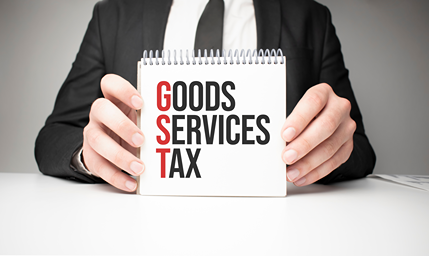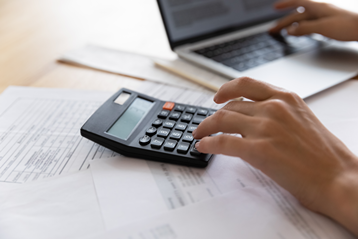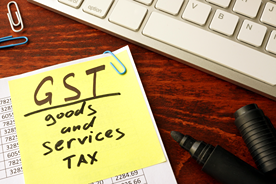Is There GST When Buying Commercial Property?

There are many things to consider when buying commercial property, and Goods and Services Tax (GST) is among the most important. Generally speaking, GST is not applied to the sale of a commercial property. However, this is entirely dependent on whether the property is tenanted or vacant.
To help make things a little clearer, we’ve put together this ultimate guide to understanding whether or not there is GST applicable when buying commercial property. We’ll look at percentages and exemptions, discuss the importance of GST due diligence, and more.
When GST Applies to Property Purchases

GST applies to property purchases under specific circumstances and entirely depends on the type of property purchased and its intended use, and to make things even more confusing, for commercial property, GST is payable depending on whether or not the building is vacant or tenanted.
A fully tenanted building, such as an apartment block with current residents, is exempt from GST. Vacant properties, such as an empty retail space or office building, are taxable, and GST will need to be paid at 10% of the negotiated property price.
For newly constructed properties, GST is payable but is usually included within the sale price, while on vacant land, GST is payable if sold as part of a business premises or by a GST registered seller.
Things are different again for residential property, which is generally exempt from GST unless it has been significantly renovated or changed for intended commercial use.
GST-Free Commercial Property Transactions

So, we know that commercial properties are generally GST-free as long as they are tenanted. However, there are also some other situations in which a commercial property may be exempt from Goods and Services tax.
The first of these is when an entire business is sold as a “going concern”. This includes the sale of all necessary assets needed to continue operating, such as the commercial premises and equipment. By taking away GST on this type of commercial property sale, further disruption and costs to the business are prevented.
The same rule applies to farmland that has been sold as a “going concern”, as the land itself is part of an operating business.
Another instance in which GST can be exempt is under the purpose of the property. For instance, charitable organisations and certain government bodies using commercial property for business may not have to pay GST.
GST Registration for Sellers

Commercial property sellers must register for GST if their annual turnover exceeds $75,000. Registration obliges the seller to collect GST on any taxable property sales and allow allows for claiming input tax credit.
There are strict compliance rules in place once you’ve registered for GST, including filing a regular business activity statement, remitting collected GST, and ensuring that you fully understand the specific rules for exemptions and unique cases.
Non-compliance with these GST obligations can lead to penalties, so it’s best to seek professional advice and guidance from the Australian Tax Office (ATO) to ensure everything is properly followed through.
Input Tax Credits for Buyers

Commercial property buyers can claim input tax credits (ITCs) on GST that is included in the purchase price. However, to qualify for ITCs, the property purchased must be for a taxable purpose, such as leasing commercial property or reselling.
ITCs cannot be claimed for GST-free properties, such as a “going concern” sale, or for residential properties, and claiming ITCs involves including the GST amount paid on the property purchase in a business activity statement.
As with registering for GST, proper documentation and compliance with GST rules are essential for buyers who want to benefit from ITCs on commercial property acquisitions.
At Revolve Commercial, we have a team of experts who can help you understand everything you need to know about GST on commercial property. Contact us today to book a no-obligation 15-minute call, and we’ll take you through your options.
Importance of GST Due Diligence

GST due diligence holds significant importance in Australia, especially when it comes to commercial transactions involving property or business acquisitions, and knowing the ins and outs is crucial for several reasons.
Firstly, GST can significantly impact the financial feasibility of a transaction, and conducting due diligence here helps in accurately assessing the total cost by factoring in your GST obligations.
Gaining a clear understanding of GST implications also allows for better negotiation strategies, as it enables parties to address GST-related terms in contracts and avoid any disputes post-transaction. Likewise, understanding GST implications mitigates risks associated with unexpected tax liabilities, ensuring smoother transactions and avoiding financial surprises!
Another reason why it’s so important to carry out GST due diligence is that it aids in accurate property valuation and feasibility studies, making it much easier to evaluate the viability and profitability of an investment.
You also need to practice GST due diligence to ensure you don’t accidentally fail to comply with GST obligations, which can lead to penalties and legal issues.
